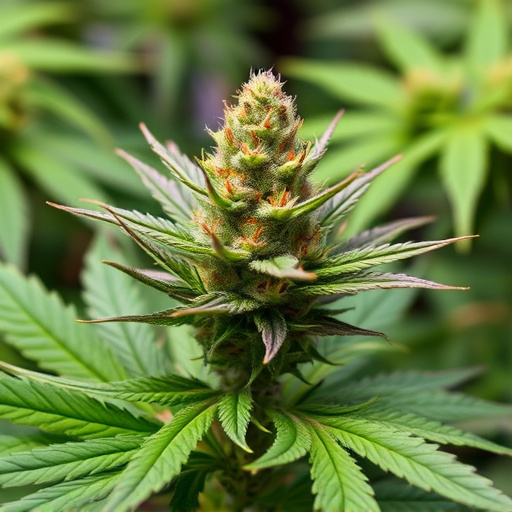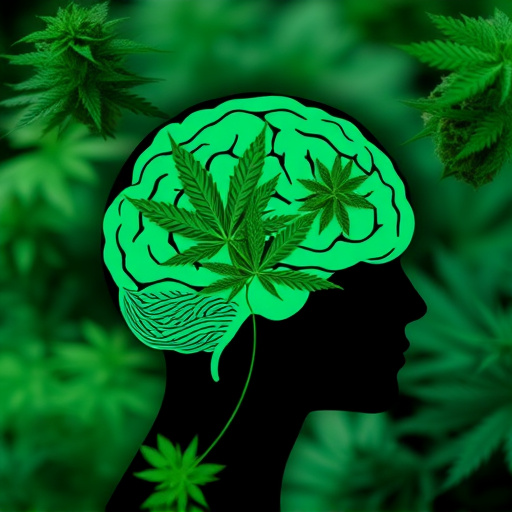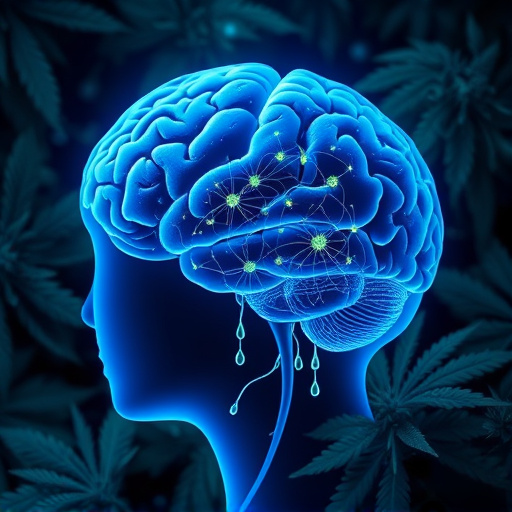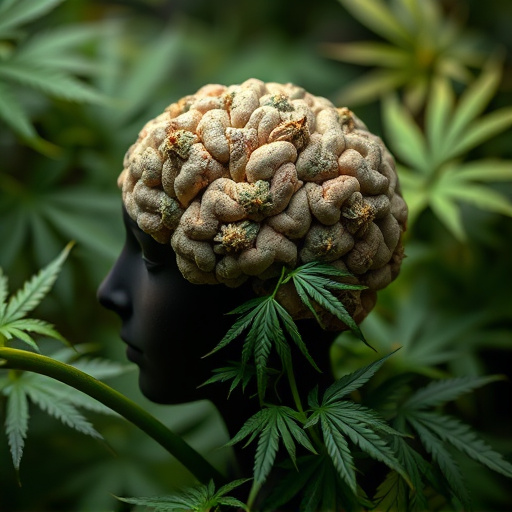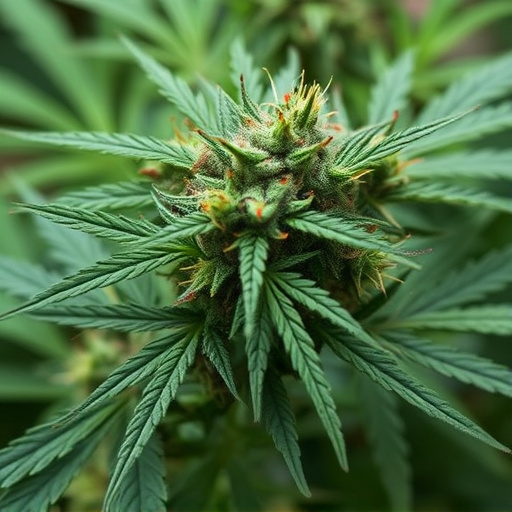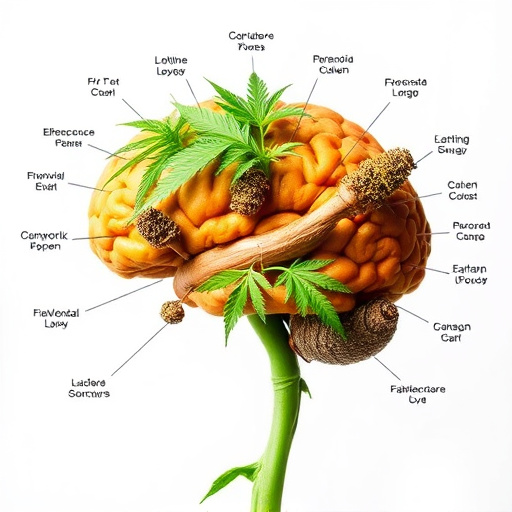High-THC cannabis strains have gained prominence in medical circles as a potential treatment for epilepsy, reducing seizures and managing symptoms through interaction with the body's endocannabinoid system. However, their potent effects may cause adverse mental health outcomes, especially in individuals with pre-existing conditions like bipolar disorder or schizophrenia. Therefore, close monitoring by healthcare professionals is crucial when considering cannabis strains for epilepsy management.
High-THC (tetrahydrocannabinol) cannabis strains have gained attention for their potential in managing epilepsy, offering a promising alternative therapy. This article delves into the intricate relationship between high-THC strains and both the body and mind, exploring their composition, benefits, and risks. We examine how these compounds interact with the body’s endocannabinoid system to potentially reduce seizures, while also investigating their impact on mental health, particularly in epilepsy treatment.
- Understanding High-THC Strains and Their Composition
- The Impact of High THC on the Body: Potential Benefits and Risks for Epilepsy Management
- Mental Health Considerations: Exploring the Mind's Response to High-THC Cannabis Strains in Epilepsy Treatment
Understanding High-THC Strains and Their Composition

Cannabis strains with high levels of THC, or tetrahydrocannabinol, have gained significant attention, especially in medical circles, for their potential to alleviate various symptoms and conditions. These high-THC strains are often sought after by patients dealing with chronic pain, nausea, and anxiety—common side effects associated with epilepsy and other debilitating disorders. The composition of these strains is where the magic happens; THC interacts with the body’s endocannabinoid system (ECS), which plays a crucial role in regulating mood, memory, appetite, and perception of pain.
High-THC strains are carefully cultivated to maximize the concentration of this potent cannabinoid. Growers use advanced techniques to ensure consistent potency, making them valuable for medicinal purposes. For instance, in the context of epilepsy treatment, high-THC cannabis strains can potentially reduce seizures and manage symptoms, offering a natural alternative or complement to traditional medications. Understanding the composition and effects of these strains is essential for both medical professionals and patients navigating the world of cannabis therapy.
The Impact of High THC on the Body: Potential Benefits and Risks for Epilepsy Management
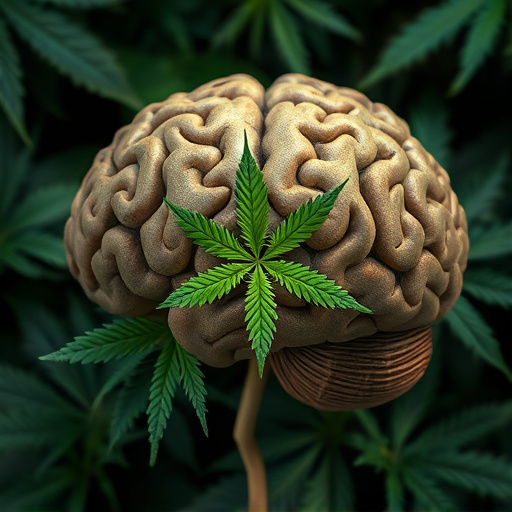
High-THC (tetrahydrocannabinol) cannabis strains have garnered attention for their potential therapeutic effects, particularly in managing certain medical conditions. In the context of epilepsy, some studies suggest that THC may offer benefits as a treatment option. The impact of high-THC on the body can be multifaceted. On one hand, it has shown promise in reducing seizures and alleviating symptoms associated with epilepsy. THC’s interaction with the endocannabinoid system could potentially regulate neuronal activity and reduce inflammation, contributing to seizure control.
However, as with any substance, there are risks involved. High-THC strains may lead to adverse effects such as increased heart rate, anxiety, and cognitive impairment in some individuals. These side effects can be more pronounced at higher THC concentrations. It’s crucial to note that the use of cannabis for epilepsy management should be approached with caution and under professional guidance. Research in this area is ongoing, aiming to uncover the full potential benefits while mitigating risks associated with high-THC cannabis strains for epilepsy treatment.
Mental Health Considerations: Exploring the Mind's Response to High-THC Cannabis Strains in Epilepsy Treatment
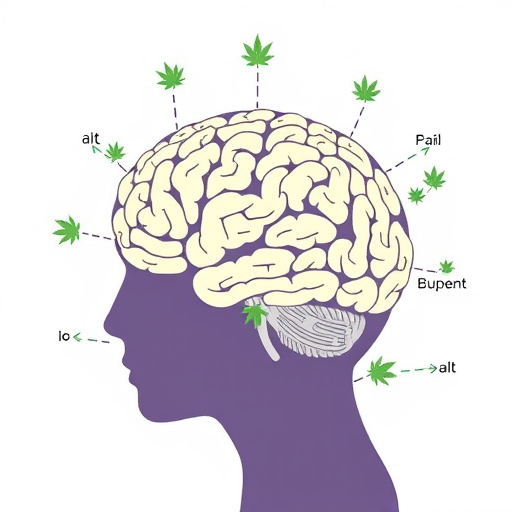
The impact of high-THC (tetrahydrocannabinol) cannabis strains on mental health, particularly in the context of epilepsy treatment, is a growing area of interest and research. While cannabis has shown promise in managing symptoms associated with epilepsy, such as seizures and associated anxiety or depression, the mind’s response to its active compounds can be complex. High-THC strains, known for their potent effects, can significantly affect brain activity and mood regulation. Studies suggest that THC interacts with the endocannabinoid system, which plays a crucial role in maintaining emotional balance and cognitive functions.
For individuals with epilepsy, high-THC cannabis strains may offer relief by reducing seizure frequency or intensifying anti-seizure medications’ effects. However, it’s essential to consider potential mental health risks, especially for those with pre-existing conditions like bipolar disorder or schizophrenia. The mind’s response to THC can vary; some users report heightened anxiety or paranoia, which might worsen existing psychological symptoms. Therefore, when using cannabis for epilepsy treatment, close monitoring and consultation with healthcare professionals are vital to ensure safe and effective use of these high-THC strains while mitigating any adverse mental health effects.
High-THC cannabis strains, while offering potential therapeutic benefits for managing epilepsy, come with a complex mix of effects on both the body and mind. As research continues, understanding the intricate relationship between THC and the human body is crucial to unlocking the full potential of these strains in treating conditions like epilepsy. Further studies are needed to navigate the delicate balance between reaping the advantages and mitigating the risks associated with high-THC cannabis strains for epilepsy treatment.


